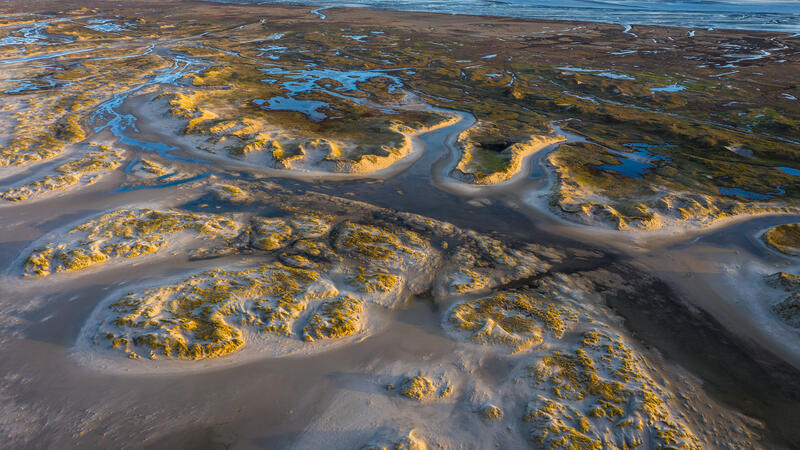Carbon Sequestration in the Wadden Sea: current knowledge and open questions
Online, Zoom

Current research suggests that coastal wetlands, especially mangroves and seagrass beds, sequester carbon at much higher rates than forests and other terrestrial habitats. Given the accelerating impact of climate change, there is increasing interest in assessing the CO2 sequestration potential of different habitat types and quantifying their contribution to greenhouse gas reduction.
At the Trilateral Governmental Conference in 2022, the Trilateral Governmental Council pledged to ‘investigate the role of the ecosystem service value of carbon sequestration by typical Wadden Sea habitats like seagrass beds and salt marshes and their contribution to the EU greenhouse gas reduction targets whilst preserving the Outstanding Universal Value'.
Information exchange between experts in science, nature conservation or management, is key to better understand the current state of knowledge on CO2 sequestration in the Wadden Sea and assess the area’s potential in contributing to the reduction of greenhouse gases. This webinar is a first step to gain an overview on available information, while also providing opportunities for experts to discuss e.g. knowledge gaps, opportunities for a trilateral assessment of CO2 sequestration and/or potential impact of management actions on CO2 sequestration in the Wadden Sea.
We will start with presentations on ongoing projects, ideally covering different Wadden Sea habitat types, followed by working together in breakout groups to discuss critical topics in more detail, giving all participants the chance to contribute to the discussion.
A follow up workshop linked to the most pressing issues will be considered for winter 2024/25.
